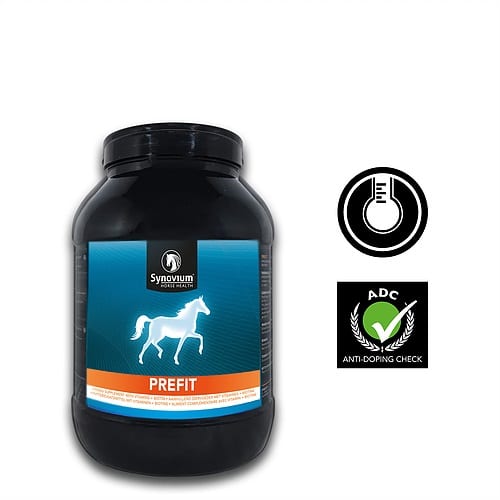
Vitamin and Mineral deficiencies in horses
Vitamins and minerals are two of the essential nutrients needed by horses, an imbalance of these nutrients can be detrimental to your horse’s overall health and performance. Good nutrition is the basis of a balanced diet and is one that supplies all the essential nutrients that a horse needs daily. Ensuring a horse has an adequate supply of protein, carbohydrates (including fibre), lipids (oils and fats), and energy is much easier than ensuring your horse is receiving enough vitamins and minerals. One way to ensure they are receiving their recommended daily amount is to use a vitamin and mineral supplement.
To determine whether your horse would benefit from supplementation it is important to know the nutritional composition of your horse’s diet. Check the nutritional value of your horse’s feed and remember grass and preserved forages such as hay are often short and unreliable for essential vitamins and minerals! Typically, fresh grass contains vitamins, but during the Winter months horses spend less time turned out grazing, and more time indoors being stabled consuming preserved forage. Once grass is preserved as hay or haylage the vitamin content decreases. Different soil types can also affect the mineral content of grass and preserved forage, which is always short of some minerals. It is recommended therefore to feed a well-formulated multi-vitamin and mineral supplement.
What are vitamins and minerals?
Vitamins and minerals are classed as essential micronutrients, since they are required in smaller amounts than carbohydrates or protein (the macronutrients). They are essential because deficiencies can cause disturbed body function and sometimes disease.
Vitamins
Vitamins play an important role for your horse, promoting and regulating several bodily functions. They are typically divided into two groups: Fat soluble vitamins which include vitamins A, D, E and K and Water-soluble vitamins include vitamins C and B-complex.
As we have discussed in our previous blogs all vitamins, except A and E are naturally produced in the body. Vitamin A and vitamin E are found in fresh grass or newly harvested hay. Therefore, a horse that is turned out to graze for most of the day will meet its vitamin A and E requirements. However, during the Winter months when horses have decreased turnout and consume more preserved forage, a supplementation may be required as the preserved forage will lack in its vitamin content the longer it is stored. Vitamin E is a potent anti- inflammatory, it protects individual cells every day and supplemented levels should be increased where horses are performing at high levels or are sick.
Vitamin A has powerful antioxidant action. This vitamin also supports vision, reproductive functions, and the equine immune system.
Vitamin D is produced naturally in the skin when your horse is turned out for most of the day and is exposed to the sun, but horses that have decreased turnout have higher dietary requirements for vitamin D. In addition, vitamin D is also abundant in fresh grass and hays. Sufficient vitamin D must be present for calcium and phosphorus to be absorbed in the body.
Vitamins K and B are produced by the microbes in the intestine and are usually found in good quality forages. Horses that are on a low forage diet or are severely stressed could have a deficiency in these vitamins. Vitamin K’s main function is coagulation: the nutrient has several properties that help blood clot properly.
B vitamins are essential for your horse’s metabolism, digestion and other major functions. B vitamins are complex and important for a healthy horse.
Vitamin C is water soluble. Water-soluble vitamins do not stay in the body for long. Vitamin C is synthesised in the horse’s liver, so a deficiency is rare. It has various roles in the body, many of which revolve around its antioxidant properties.
Minerals
In contrast to vitamins, minerals have a definition separate from their role in body functioning. They are inorganic nutrients classed as either: macro (or major) minerals, and micro minerals (or trace elements). Some essential Macro minerals include Calcium, Phosphorus, Magnesium, Sodium, Chloride, Potassium, and Sulphur. Some essential micro minerals include Iron, Zinc, Copper, Selenium, Manganese, Iodine, and Cobalt.
Macro mineral needs in the horse’s diet varies and the following factors need to be taken into consideration, bodyweight, age, physiological condition, and workload. Most concentrate feeds have some mineral contents however, as previously discussed mineral content in preserved forages can vary significantly and the only way to get an accurate measurement of minerals present, is to send a sample to a laboratory for testing.
Micro mineral needs are required for normal growth, development and metabolism so meeting these needs is essential. The micro mineral content of concentrated feed is variable and again needs to be confirmed by laboratory analysis. The safety margin for most trace minerals is reasonably wide and therefore allows you to use a mineral supplement alongside the rest of the ration without the risk of exceeding the maximum tolerance levels.
It can be complicated to create a diet using a range of feed to satisfy all the horse’s mineral needs, so the favoured alternative is supplementation at the recommended rate for your horse.
Your horse’s immune system
Your horse’s immune system defends against the toxins and pathogens that lead to illness and disease. You can help him fight infections with an immune boosting supplement. If a horse is rundown, malnourished, stressed, or ill they may struggle to defend against infection.

SYNOVIUM® PREFIT
Is balanced essential vitamin and mineral supplement for horses. Prefit can be used in periods of intense training and if extra attention is required for maintaining good immune resistance, for example during transport. Prefit contains a balanced composition with high-quality vitamins, minerals, trace elements and Biotin to make your horse feels optimally fit. This supplement can be used for a lack of vitamins in preserved forage and to boost the immune system. Good to use with heavy training, transport, seasonal changes and after illness. Provides a good source of Biotin for horses to maintain healthy hooves.
- Provides essential vitamins and minerals for horses
- Ideal for intensive training and when an immune boost is required for extra resistance (ie during travelling)
- Provides optimal health
- Contains Vitamin A, B1, B2, B3, B5, B6, B12, Folic Acid, Biotin, Vitamin C, D3, E, K, Copper, Sodium, Iron, Iodine, Calcium, Manganese & Zinc
To get yours today click on the link below: https://www.synovium.co.uk/products/synovium-prefit/
Take advantage of our amazing Autumn offer of 20% off the entire Synovium range during October with the discount code: OCT20

